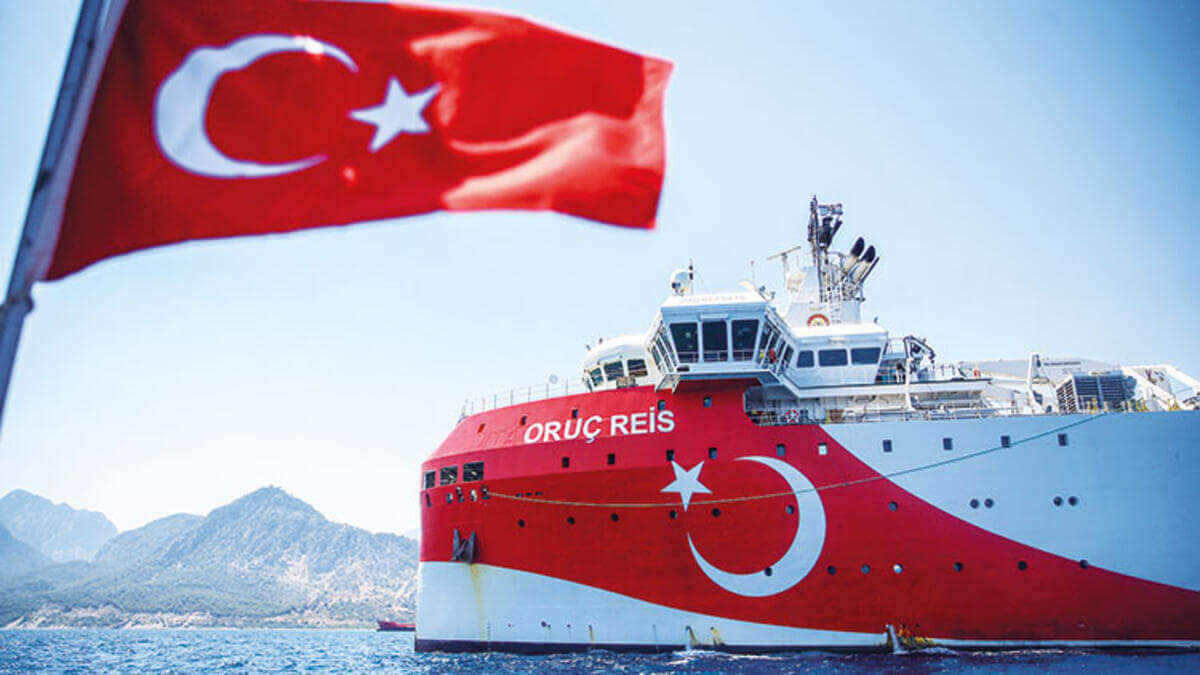Greece has accused Turkey of “threatening peace” in the eastern Mediterranean and has its military on high alert, after Ankara announced on Monday that its seismic research ship, Oruç Reis, and two auxiliary vessels would be conducting exploratory drilling in the disputed waters between Cyprus and Greece until August 23.
Athens and Ankara have locked heads over their claims for hydrocarbon resources in the region. Previously, Turkey decided to suspend drilling in the area as a gesture of goodwill for the ongoing negotiations between the two neighbors, mediated by Germany, which aimed to find a solution to their differences in the Eastern Mediterranean.
However, tensions were reignited last week, after Greece signed a maritime demarcation agreement with Egypt, to create an exclusive economic zone (EEZ)—which can extend up to 200 nautical miles—in the waters that contain oil and gas reserves. Ankara immediately condemned the deal as an infringement on Turkey’s continental shelf. In a statement, the Turkish foreign ministry said: “A maritime boundary between Greece and Egypt does not exist. With respect to Turkey, the so-called maritime delimitation agreement is null and void. This understanding will reflect on the ground and at the table.” Turkey, it vowed, “will not allow any activity at the area in question and will resolutely continue to defend its legitimate rights and interests as well as those of the Turkish Cypriots in the eastern Mediterranean.”
The announcement signals Turkey’s resolve to not accept any deal or action that would limit its own national interests in the waters. President Recep Tayyip Erdoğan said on Monday that Turkey is “always ready” to resolve conflicts through “dialogue on an equitable basis,” and called on Mediterranean counties to come together to find an “acceptable formula that protects the rights of all”.
“No way Turkey would consent to any initiative trying to lock the country to its shores, ignoring the vast Turkish territory. Turkey will continue to implement its own plans in the field and diplomacy until common sense prevails on the issue,” he added.
In recent years, the eastern Mediterranean has become an energy hot spot, with big finds for Cyprus, Israel, and Egypt; Turkey’s push to secure a share of the resources has exacerbated strains, however. Last year, Turkey deployed two drilling ships off the divided island of Cyprus, claiming that it was operating in waters on its own continental shelf, despite the Republic of Cyprus and the European Union (EU) stating otherwise.
The Greek foreign ministry criticized Turkey’s Monday decision, saying it constituted a “new serious escalation” and “exposed” Turkey’s “destabilizing role”. The Greek national security council convened an emergency meeting on the same day, with defense officials stating that Greece was in “full political and operational readiness to deal with Turkish aggression”.
The developments prompted international calls for restraint and dialogue, with NATO chief Jens Stoltenberg urging the nations to resolve the issue “in a spirit of allied solidarity and in accordance with international law”. German Ministry of Foreign Affairs spokesperson Christopher Burger also expressed concern about Turkey’s actions, stressing that unilateral would not yield any solution to the issue, and instead would strain Turkey’s relations with the EU. “Both sides should resolve all outstanding issues at the negotiating table and start a bilateral dialogue, as planned, between Athens and Ankara,” he added.
Greece Slams Turkey’s Announcement of Exploratory Drilling in Disputed Waters
The neighbors have locked heads over their claims for hydrocarbon resources in the region.
August 11, 2020

SOURCE: HURRIYET DAILY NEWS
